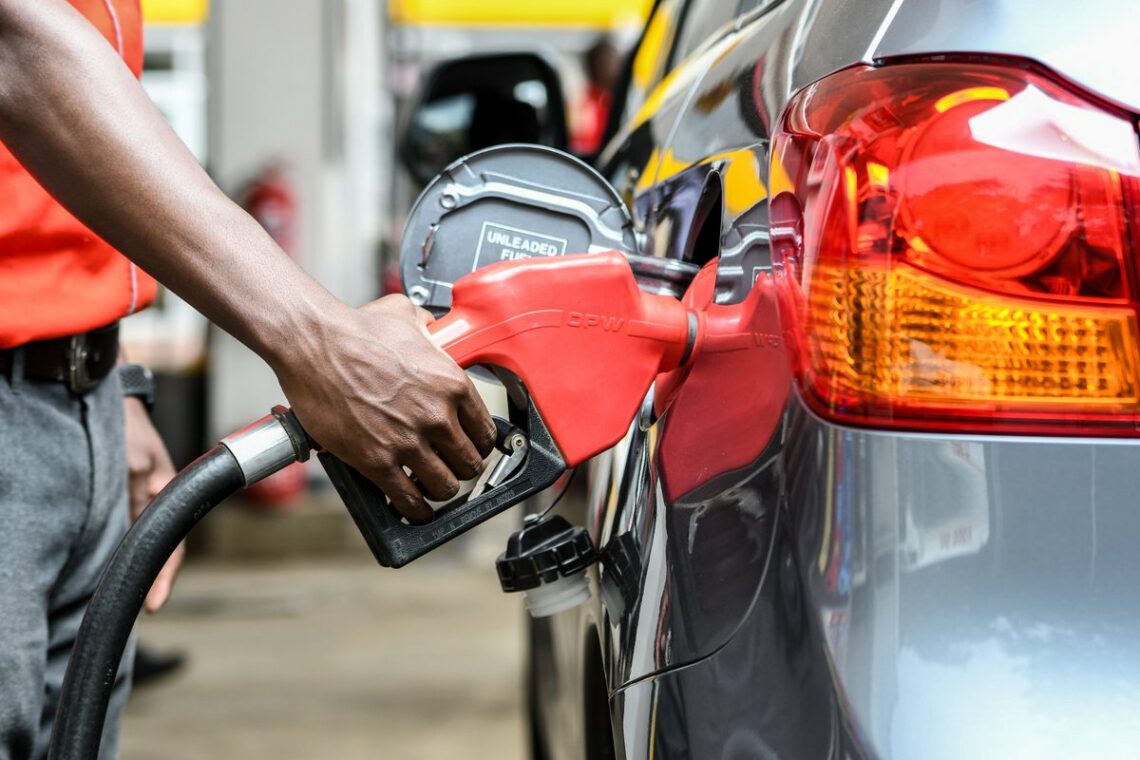Commuters in Lagos and Ogun States woke up to dramatically increased transport fares, with many left stranded at bus terminals as drivers scrambled to refuel. The situation worsened as numerous petrol stations shut down operations following the announcement of a petrol price hike by the Nigerian National Petroleum Company Limited (NNPCL).
The NNPCL recently raised the petrol price from N855 to N998 per litre in Lagos, with prices exceeding N1,000 per litre in Abuja. This marks the second increase in just 24 days and comes less than 72 hours after the NNPCL announced it would no longer act as a middleman for the Dangote Refinery.
For instance, the North-West Filling Station at Maryland is selling petrol at N999, while other stations around Ikeja are charging between N885 and N998 per litre. The NNPC outlet at Ojota has also increased its price to N998, leading to long queues as vehicles compete for limited supplies.
Motorist Olumide Ajayi expressed frustration, stating, “If we don’t buy today, expect to pay as much as N1,000 tomorrow. Other stations will adjust their prices upwards too, so I’m struggling to fill up today.”
Along the Lagos-Ibadan Expressway, many filling stations remained closed. Among those that were open, prices varied significantly, with Nipco selling petrol for N1,050 and Rainoil for N1,120 per litre. Other stations like Rabade were also charging N1,120 at the time of reporting.
The AP Fuel Station at Oba-Akran, Ikeja, was selling at N897 per litre, while MRS Filling Station priced petrol at N1,000 per litre. NNPC on Billings Way, Oregun, and Conoil Ikeja were charging N1,000 and N1,100 per litre, respectively.
Dr. Muda Yusuf, CEO of the Centre for the Promotion of Private Enterprise (CPPE), lamented that the latest price hike is poorly timed, failing to consider the difficult economic conditions many Nigerians are facing. He emphasised that social, economic, and political factors must be factored into policy-making and that commercial interests should not dominate.
He warned that high social costs often accompany such policy choices, particularly in an economy with weak safety nets. “Over one hundred million people are living in various forms of poverty,” he stated.
Dr. Yusuf argued that it would have been wiser for the government to activate the proposed Economic Stabilisation Bill before implementing the petrol price increase, which could further exacerbate existing economic challenges. He called for urgent cuts in import duties and taxes on essential goods and vehicles, advocating for a customs duty exchange rate capped at N1000/dollar.
NATIONAL ECONOMY reports that the increase, effective Wednesday, is a 12.7 per cent rise, or N113, from the previous price. The NNPCL had raised petrol prices from N568 on September 3, 2024, which was the lowest in Lagos, to a minimum of N855.
This adjustment follows the NNPCL’s decision to end its exclusive purchase agreement with Dangote Refinery, allowing marketers to negotiate prices directly. Stakeholders fear that this will lead to higher, cost-reflective prices for petrol.
The last pricing template from NNPCL on September 15 indicated that petrol was selling for N980 per litre in Lagos and N1,010 in Maiduguri, with prices even higher at major and independent marketers’ outlets.
The current situation aligns with practices for fully deregulated products, where refineries can sell directly to marketers. Earlier in September, Dangote Industries Limited confirmed that its 650,000 barrels per day refinery had begun processing petrol.
In response to claims that Dangote Refinery is being undermined, NNPCL clarified that it is not the sole off-taker of all products from the refinery, which is free to sell to any marketer under the current market structure.
Industry leaders, including Robert Dickerman, CEO of Pinnacle Oil and Gas, have called for strong fiscal policies to restore investor confidence in Nigeria’s mid and downstream oil sector. They argue that current pricing remains uncompetitive due to various subsidy forms.
Dickerman highlighted that restoring global confidence in Nigeria’s economy and currency is crucial. He stated that all crude and petroleum products are globally priced in USD, and any price below that in Nigeria reflects government subsidies.





